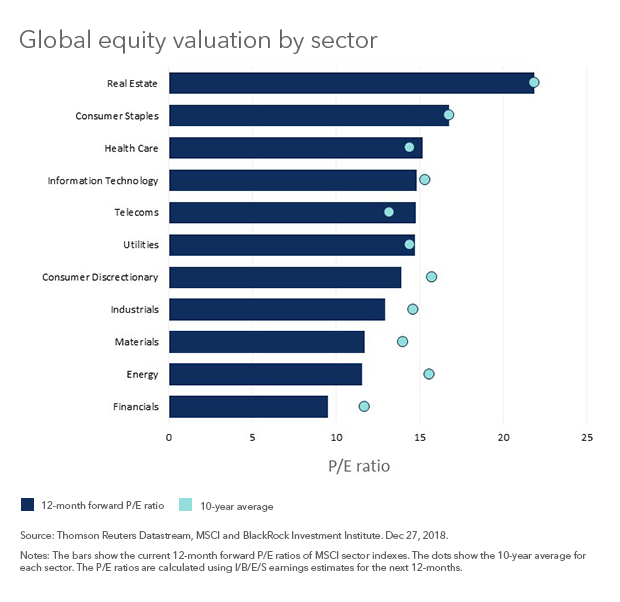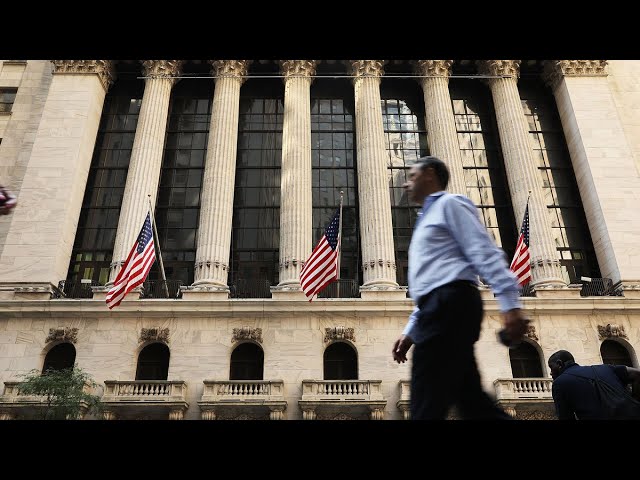by Russ Koesterich, Chief Investment Strategist, Blackrock Investments
After December’s rout, are stocks now reasonably valued? Russ’ answer may surprise you.
With the exception of a few, hardy centenarian traders, nobody has ever witnessed a December like the one that just ended. A difficult year ended with a collapse in equities as investors began to discount a growing possibility of an economic slowdown. Globally stocks fell roughly 8%, leaving every major index in the red for the year. The silver lining, to the extent there was one, was that December’s rout left stocks the cheapest in years and early January saw stocks rise. That said, are stocks truly cheap? A few observations:
1. The big bargains are still outside the United States.
The broadest global equity index, the MSCI All Country Index, closed December at just under 15 times trailing earnings, the lowest valuation since mid-2012. However, the majority of that discount is coming from international markets. Looking at the ACWI-ex U.S. Index the valuation is less than 13 times earnings, a 32% discount to the 2017 peak. However, U.S. valuations are another story. While the trailing multiple on the S&P 500 is down more than 20% from last year’s peak, it has only reverted back to the post-crisis average.
2. Stocks look cheap versus bonds, less so after accounting for deteriorating financial conditions.
Stocks, including in the United States, look cheap if you adjust for interest rates. The Equity Risk Premium, the differential in expected yield on stocks versus bonds, is well above average, suggesting stocks look cheap relative to bonds. That said, stocks look less compelling if you believe that financial conditions will continue to tighten. Looking at U.S. valuations versus market volatility or broader financial conditions suggests lower valuations are consistent with dearer money and more volatile markets.
3. Cyclicals looks cheap, defensives less so.
Looking at valuations both on an absolute level and relative to history, the cheapest sectors are financials, energy, materials, industrials and consumer discretionary (see Chart 1). Real estate, consumer staples and healthcare show up as the most expensive. Interestingly, not only are the defensive sectors expensive on an absolute basis, but in the case of real estate and healthcare they are still trading slightly above their 10-year average. The takeaway: With evidence growing that the economy is slowing, investors have been willing to pay up for names perceived as less economically sensitive.
Given these nuances, how should investors position their equity portfolio? I would advocate a barbell approach, one that includes more cash while bottom-fishing in beaten-up cyclicals. My logic is that the last 12 months are best characterized as a rolling bear market. In other words, investors have successively punished various segments, starting earlier in the year with emerging markets. Interestingly, it was the most beaten up segments, notably emerging markets and Europe that outperformed during December’s carnage. As such, select EM equities or perhaps European energy companies look particularly cheap and interesting. At the same time, some of the segments investors have been flocking to, notably defensives, still look a long way from cheap.
Russ Koesterich, CFA, is Portfolio Manager for BlackRock’s Global Allocation team and is a regular contributor to The Blog.















